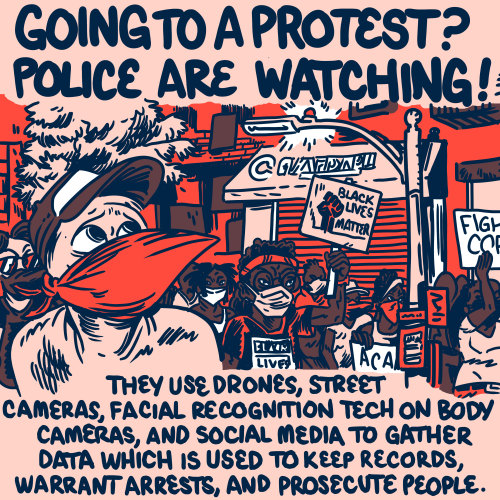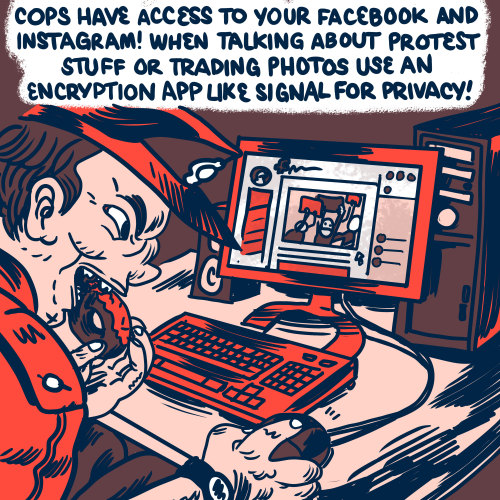Discworld Is An Interesting Beast In The Age Of ACAB. Like, The City Watch Books Are A Story About Police
Discworld is an interesting beast in the age of ACAB. Like, the city watch books are a story about police and the way in which a good police force can help and protect people. Which would make it copoganda. And I'm not going to say that the City Watch books are completely free of copoganda, but they also do something interesting that fairly few stories about heroic police officers do, and I think it has a lot to do with Samuel Vimes. A lot of copoganda stories like, say, Brooklyn 99, are perfectly capable of portraying cops as cruel, bigoted, and greedy, but our central cast of characters are portrayed as good people who want to help their communities. The result is that the bad cops are portrayed as an aberration, while most cops can be assumed to be good people doing a tough job because they want to help protect people from the nebulous evil forces of "Crime". The police are considered to be naturally heroic. Pratchett does something very interesting, which is provide us with Vimes' perspective, and present us with an Unnaturally heroic police force. In Ahnk-Morpork, the natural state of the watch is a gang with extra paperwork. It's the place for people who, at best, just want a steady paycheck and at worst want an excuse to hit people with a truncheon. Rather than be an army defending people from the forces of Crime, the Watch is described as a sort of sleight-of-hand, big burly watchmen in shiny uniforms don't stand around in-case a Crime happens in their vicinity, they stand around to remind people that The Law exists and has teeth. The Watchmen are people, when danger rears it's head, their instinct is to hide and get out of the way. When faced with authority, their instinct is to bow to it out of fear of what it might do to them if they don't. Carrot is a genuine Hero, but his natural heroism is presented as an aberration. Normal Cops don't act like Carrot does. The fact that the Watch ends up acting like a Heroic Police Force is largely due to the leadership of Sam Vimes, but Vimes himself is a microcosm of the Watch. The base state of Sam Vimes would be an alchoholic bully of an officer, one who beats people until they confess to anything because that makes his job easier. Vimes The Hero is a homunculous, an artificial being created by Sam Vimes fighting back all those instincts and FORCING himself to behave as his conscience dictates. Vimes doesn't take bribes or let his officers do the same because, damnit, that sort of thing shouldn't happen, even if doing so would make things a lot easier. Vimes doesn't run towards sounds of screaming because he WANTS to, he forces himself to do so because somebody needs to. It's best summed up in Thud “Quis custodiet ipsos custodes? Your Grace.” “I know that one,” said Vimes. “Who watches the watchmen? Me, Mr. Pessimal.” “Ah, but who watches you, Your Grace?” said the inspector with a brief little smile. “I do that, too. All the time,” said Vimes. “Believe me.”
In the hands of another writer, or another series, this exchange would be weirdly dismissive. To whom should the police be accountable to? Themselves, shut up and trust us. But from Vimes, it's a different story. Vimes DOES constantly watch himself, and he doesn't trust that bastard, he's known him his entire life. The Heroic Police are not a natural state, they're an ideal, and ahnk-morpork only gets anywhere close. Vimes is constantly struggling against his own instincts to take shortcuts, to let things slide, but he forces himself to live up to that ideal and the Watch follows his example. Discworld doesn't propose any solutions to the problems with policing in the real world. We don't have a Sam Vimes to run the NYPD and force them to behave. We don't have a Carrot Ironfounderson. But it's at least a story about detectives and police that I can read without feeling like I'm being sold propaganda about the Thin Blue Line.
More Posts from Thestarsarenotyetnamed and Others








Fourth in a series I of comics about protesting safety tips I made with @this.is.ysabel . This one is about the dangers of police surveillance and how to avoid it if possible. Keep being safe when you go out. Don’t get snatched!
reblog if you:
are nonbinary
have dyed/cut your own hair over quarantine
love netflix cartoons
support nonbinary people
Whgskl. Okay.
PSA to all you fantasy writers because I have just had a truly frustrating twenty minutes talking to someone about this: it’s okay to put mobility aids in your novel and have them just be ordinary.
Like. Super okay.
I don’t give a shit if it’s high fantasy, low fantasy or somewhere between the lovechild of Tolkein meets My Immortal. It’s okay to use mobility devices in your narrative. It’s okay to use the word “wheelchair”. You don’t have to remake the fucking wheel. It’s already been done for you.
And no, it doesn’t detract from the “realism” of your fictional universe in which you get to set the standard for realism. Please don’t try to use that as a reason for not using these things.
There is no reason to lock the disabled people in your narrative into towers because “that’s the way it was”, least of all in your novel about dragons and mermaids and other made up creatures. There is no historical realism here. You are in charge. You get to decide what that means.
Also:

“Depiction of Chinese philosopher Confucius in a wheelchair, dating to ca. 1680. The artist may have been thinking of methods of transport common in his own day.”
“The earliest records of wheeled furniture are an inscription found on a stone slate in China and a child’s bed depicted in a frieze on a Greek vase, both dating between the 6th and 5th century BCE.[2][3][4][5]The first records of wheeled seats being used for transporting disabled people date to three centuries later in China; the Chinese used early wheelbarrows to move people as well as heavy objects. A distinction between the two functions was not made for another several hundred years, around 525 CE, when images of wheeled chairs made specifically to carry people begin to occur in Chinese art.[5]”
“In 1655, Stephan Farffler, a 22 year old paraplegic watchmaker, built the world’s first self-propelling chair on a three-wheel chassis using a system of cranks and cogwheels.[6][3] However, the device had an appearance of a hand bike more than a wheelchair since the design included hand cranks mounted at the front wheel.[2]
The invalid carriage or Bath chair brought the technology into more common use from around 1760.[7]
In 1887, wheelchairs (“rolling chairs”) were introduced to Atlantic City so invalid tourists could rent them to enjoy the Boardwalk. Soon, many healthy tourists also rented the decorated “rolling chairs” and servants to push them as a show of decadence and treatment they could never experience at home.[8]
In 1933 Harry C. Jennings, Sr. and his disabled friend Herbert Everest, both mechanical engineers, invented the first lightweight, steel, folding, portable wheelchair.[9] Everest had previously broken his back in a mining accident. Everest and Jennings saw the business potential of the invention and went on to become the first mass-market manufacturers of wheelchairs. Their “X-brace” design is still in common use, albeit with updated materials and other improvements. The X-brace idea came to Harry from the men’s folding “camp chairs / stools”, rotated 90 degrees, that Harry and Herbert used in the outdoors and at the mines.[citation needed]
“But Joy, how do I describe this contraption in a fantasy setting that wont make it seem out of place?”
“It was a chair on wheels, which Prince FancyPants McElferson propelled forwards using his arms to direct the motion of the chair.”
“It was a chair on wheels, which Prince EvenFancierPants McElferson used to get about, pushed along by one of his companions or one of his many attending servants.”
“But it’s a high realm magical fantas—”
“It was a floating chair, the hum of magical energy keeping it off the ground casting a faint glow against the cobblestones as {CHARACTER} guided it round with expert ease, gliding back and forth.”
“But it’s a stempunk nov—”
“Unlike other wheelchairs he’d seen before, this one appeared to be self propelling, powered by the gasket of steam at the back, and directed by the use of a rudder like toggle in the front.”
Give. Disabled. Characters. In. Fantasy. Novels. Mobility. Aids.
If you can spend 60 pages telling me the history of your world in innate detail down to the formation of how magical rocks were formed, you can god damn write three lines in passing about a wheelchair.
Signed, your editor who doesn’t have time for this ableist fantasy realm shit.
Shakespeare dramatists have zero chill:


























(x)
the person who helped today when I fell out of my wheelchair actually did a really great job, so I want to share in case other people wonder what to do. [Note: this is not universal, this is merely a suggestion from one person, every wheelchair user's needs are different! I am a person who uses a manual chair usually pushed by someone else who is also disabled.]
Scenario: you see someone in a wheelchair fall out of their chair, and you have the ability to help.
1. Approach and ask "are you okay?"*
2. Next question if they say no, are vague, or open to continuing conversation** is, "is there anything I can do to help?" Or "what can I do?"
If they say no to help, then that's the end, just leave and go do whatever you were doing!
If they ask for help or say they are mildly injured, ask "what would you like me to do?" And wait for an answer before doing anything! If they seem dazed or confused, they might have hit their head or had another medical event*, or they might just be like that due to regular disability. Be patient.
Do not touch the person unless they say to, or they are like, unconcious in the middle of the road, ya know?? Wheelchair users usually have conditions that mean being handled improperly can severely injure us, you could cause much more damage than the fall.
Some things they might need you to do:
Bring their wheelchair closer (mine went about 5 feet away after it dumped me)
engage the brakes of the wheelchair
hold wheelchair steady if it's an unsteady surface (mud, hill, ramp, wet, etc)
offer an arm for them to hold onto to get up (them grabbing you, not you grabbing them) or move another solid item closer for them to use (i.e. a chair) [only do this if you physically have the ability to!]
If the terrain is rough (i.e. a parking lot), they *might* ask you to push their chair to a more stable area once they are back in their chair
nothing
Something else
Do what they ask, NOT what you think would be helpful. If for some reason you have to do something (i.e. you can't stop oncoming traffic and need to get them out) ASAP, tell them what you plan to do
Keep in mind they might also be D/deaf, have a communication disability, be stunned after the fall, have a head injury, not trust other people, etc. Be patient and treat them as a person with autonomy and agency! They might need to just sit on the ground for a few minutes to recover before trying to get back in their chair. They might want everyone to leave them alone. They might ask you to call someone specific. Their chair might have broken and that can be extremely distressing. All of this is like if your legs spontaneously stop working when you're out and about!
A lot of wheelchair users (NOT ALL) have ways to get into their chair on their own once the chair is close enough and brakes engaged (but it's hard from the ground!). Here's what brakes look like on a lot of manual wheelchairs, in case they ask you to lock the brakes. They're levers on each side and pushing the lever pushes a bar against the wheel to hold it still.

ID: A manual wheelchair with the brake levels circled in red and labeled "user brake levers"
*There is also the possibility of course that a person fell out of their chair due to a seizure or other medical event, so that is why it is important to ask if they are okay. If you saw them hit their head, tell them so. If they had a medical event, follow protocol for that, I'm not gonna get into it here (thought I could).
**sometimes a person will be clear after the first question i.e. "I'm all good thanks" clearly means they do not need you to ask another question, you can just leave them alone. Keep walking and don't stare. A lot of the time people will be a bit banged up but be totally fine and able to manage on their own.
TLDR: Ask the wheelchair user if they're okay, then what they need, and then do exactly that, including leaving them alone. Thanks!
EVERYONE SHUT THE FUCK UP SCIENTISTS AT THE SCHMIDT OCEAN INSTITUTE HAVE FOOTAGE OF A LIVE COLOSSAL SQUID FOR THE FIRST TIME EVER !!!!!!!!!!!!!!!!!!!
🦑‼️🦑‼️🦑‼️🦑‼️🦑‼️🦑
Real talk time.
Colonialism still exists. The effects of original colonization still exist.
Native Hawaiians cannot afford to live on our own land. Everyday tourism kills us.
We are fined for using our water. We are screamed at by tourists. We are stacked in concrete apartments the size of shoe boxes. Waiting lists for apartments are decades long. The government never provides aid. The money that belongs to us is wasted on half finished monorails and hotels. Tourist take pictures of us like we’re an attraction.
In 2018, the UN acknowledged the present day occupation of Hawai’i. And they did nothing.
“The Living Wage Calculator from the Massachusetts Institute of Technology (MIT) says that one adult in Honolulu needs to make $16.59 per hour for a living wage. If that is a couple with 2 children, each adult needs to make $17.70 per hour.”
-RealHawaii.Co
My culture, my people, are sexualized, ignored and stepped on.
We cannot live. And everyday more of us die.
And no one even notices. So notice. Notice. Notice.
The UK government has got a survey on about reform of the disability benefits system, and has kept mega quiet about it presumably to keep responses down.
Please can we spread this? People who can fill it in: "Our approach must be informed by different views and opinions, particularly those of disabled people and people with health conditions."
This system has killed tens of thousands of us. Odds are they'll ignore the responses the same way they ignored the GRA consultation, but...






Astronomical photographs, Harvard College Observatory, Cambridge, 1890-1920





Art by Romain MAZEVET
-
 cannibaldruid liked this · 1 month ago
cannibaldruid liked this · 1 month ago -
 jinglekell liked this · 1 month ago
jinglekell liked this · 1 month ago -
 fangirl-is-a-lifestyle reblogged this · 1 month ago
fangirl-is-a-lifestyle reblogged this · 1 month ago -
 gentleobservations liked this · 1 month ago
gentleobservations liked this · 1 month ago -
 tomfoolery-gov liked this · 1 month ago
tomfoolery-gov liked this · 1 month ago -
 allhailcrowleylonglivetheking reblogged this · 1 month ago
allhailcrowleylonglivetheking reblogged this · 1 month ago -
 allhailcrowleylonglivetheking liked this · 1 month ago
allhailcrowleylonglivetheking liked this · 1 month ago -
 alexandableak reblogged this · 1 month ago
alexandableak reblogged this · 1 month ago -
 the-thread-of-the-infinite reblogged this · 1 month ago
the-thread-of-the-infinite reblogged this · 1 month ago -
 fallout-new-vegas-official reblogged this · 1 month ago
fallout-new-vegas-official reblogged this · 1 month ago -
 ferociousbroccoli liked this · 1 month ago
ferociousbroccoli liked this · 1 month ago -
 psychuan reblogged this · 1 month ago
psychuan reblogged this · 1 month ago -
 darael reblogged this · 1 month ago
darael reblogged this · 1 month ago -
 famishedeye reblogged this · 1 month ago
famishedeye reblogged this · 1 month ago -
 amnestiis reblogged this · 1 month ago
amnestiis reblogged this · 1 month ago -
 amnestiis liked this · 1 month ago
amnestiis liked this · 1 month ago -
 alera21 liked this · 1 month ago
alera21 liked this · 1 month ago -
 stillmostlylurking reblogged this · 1 month ago
stillmostlylurking reblogged this · 1 month ago -
 yallevabeentochilis liked this · 1 month ago
yallevabeentochilis liked this · 1 month ago -
 memekind reblogged this · 1 month ago
memekind reblogged this · 1 month ago -
 ebend reblogged this · 1 month ago
ebend reblogged this · 1 month ago -
 miriamnox liked this · 1 month ago
miriamnox liked this · 1 month ago -
 starring-in reblogged this · 1 month ago
starring-in reblogged this · 1 month ago -
 sidhevicious reblogged this · 1 month ago
sidhevicious reblogged this · 1 month ago -
 luciddreamsofmachines reblogged this · 1 month ago
luciddreamsofmachines reblogged this · 1 month ago -
 45silverwormsinatrenchcoat liked this · 1 month ago
45silverwormsinatrenchcoat liked this · 1 month ago -
 paragonrobits liked this · 1 month ago
paragonrobits liked this · 1 month ago -
 maddie-2022 reblogged this · 1 month ago
maddie-2022 reblogged this · 1 month ago -
 maddie-2022 liked this · 1 month ago
maddie-2022 liked this · 1 month ago -
 calligrafiti reblogged this · 1 month ago
calligrafiti reblogged this · 1 month ago -
 calligrafiti liked this · 1 month ago
calligrafiti liked this · 1 month ago -
 shakespeareaddict reblogged this · 1 month ago
shakespeareaddict reblogged this · 1 month ago -
 wren-jie reblogged this · 1 month ago
wren-jie reblogged this · 1 month ago -
 wren-jie reblogged this · 1 month ago
wren-jie reblogged this · 1 month ago -
 lesbiankiliel reblogged this · 1 month ago
lesbiankiliel reblogged this · 1 month ago -
 dent-de-l1on reblogged this · 1 month ago
dent-de-l1on reblogged this · 1 month ago -
 sociallychallengednerd reblogged this · 1 month ago
sociallychallengednerd reblogged this · 1 month ago -
 lutzy546 liked this · 1 month ago
lutzy546 liked this · 1 month ago -
 ocqueen liked this · 1 month ago
ocqueen liked this · 1 month ago -
 false-dawn liked this · 1 month ago
false-dawn liked this · 1 month ago -
 pajamajedi reblogged this · 1 month ago
pajamajedi reblogged this · 1 month ago -
 pajamajedi liked this · 1 month ago
pajamajedi liked this · 1 month ago -
 saxifraga-x-urbium reblogged this · 1 month ago
saxifraga-x-urbium reblogged this · 1 month ago -
 aydenburd liked this · 1 month ago
aydenburd liked this · 1 month ago -
 ginandjack liked this · 1 month ago
ginandjack liked this · 1 month ago -
 hawthorneox reblogged this · 1 month ago
hawthorneox reblogged this · 1 month ago -
 hawthorneox liked this · 1 month ago
hawthorneox liked this · 1 month ago -
 artifactualcavalier reblogged this · 1 month ago
artifactualcavalier reblogged this · 1 month ago -
 artifactualcavalier liked this · 1 month ago
artifactualcavalier liked this · 1 month ago -
 aggrus reblogged this · 1 month ago
aggrus reblogged this · 1 month ago

301 posts